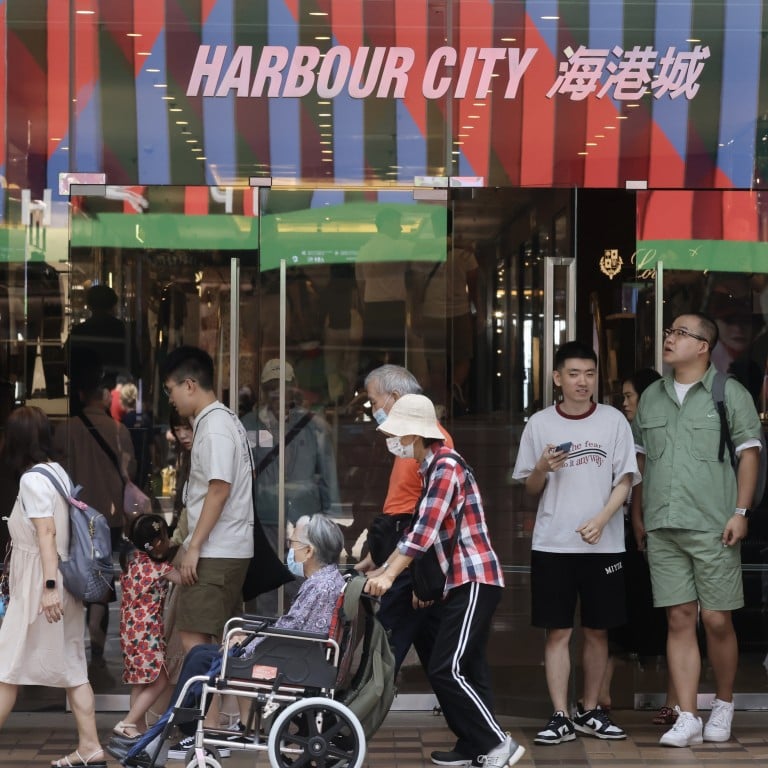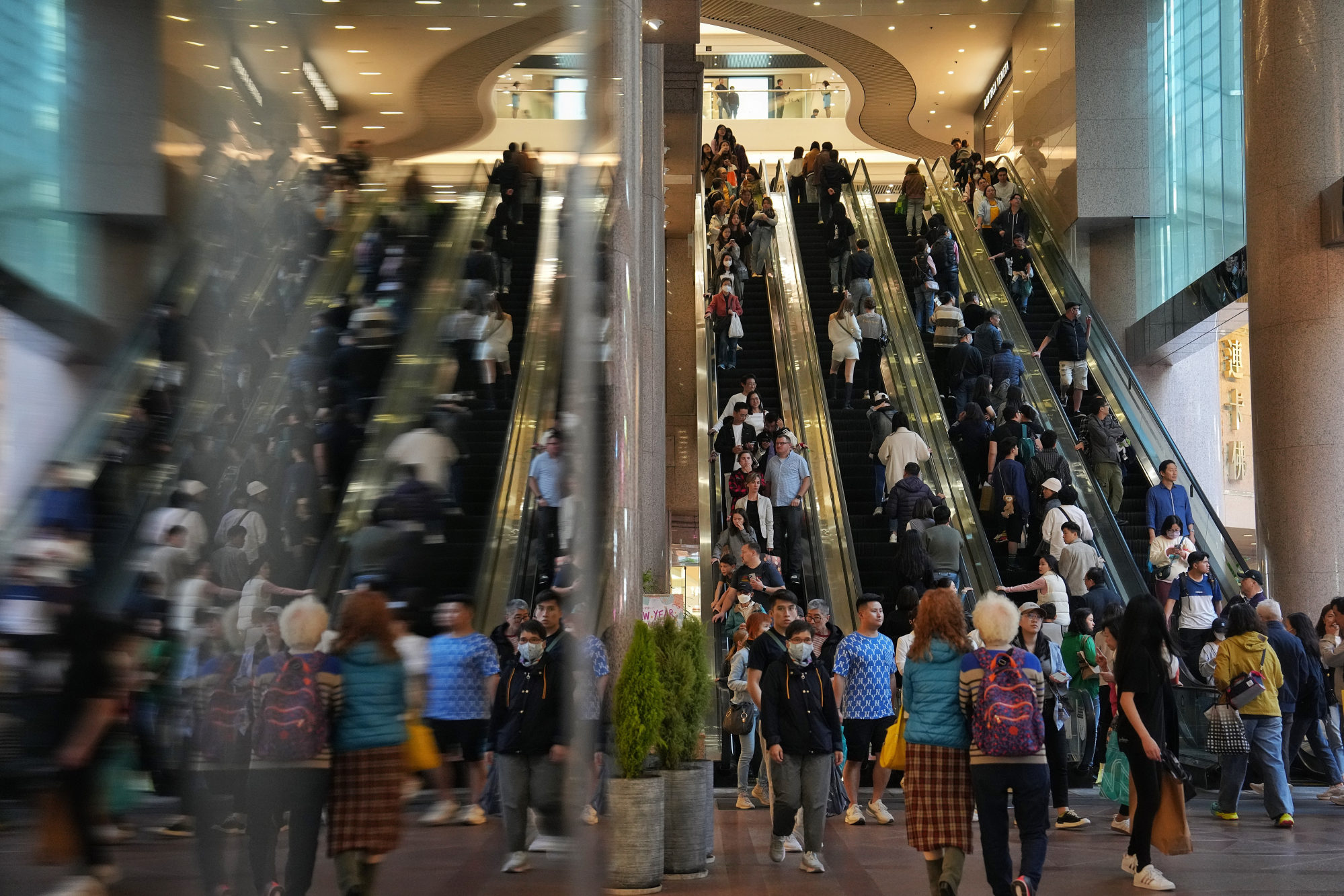
Hong Kong mall owner Wharf Reic looks to stimulate spending with promotions after posting flat profit
- Harbour City and Times Square owner’s full-year 2023 profit fell 3 per cent to US$767.3 million even as revenue jumped 7 per cent
- The company said it hopes to navigate and overcome headwinds through promotional activities with the Hong Kong government
Net profit slipped 3 per cent to just over HK$6 billion (US$767.3 million) despite a 7 per cent jump in revenue to HK$13.3 billion.
The company’s net debt fell to HK$36.3 billion, the lowest since its listing in 2017.
“The group shall enhance tenant offerings and promotional activities in collaboration with the government’s campaigns to stimulate tourists’ and locals’ spending amid competition,” Wharf Reic said in a filing to the Hong Kong stock exchange on Thursday. “Through the joint efforts, Hong Kong will navigate and overcome the present headwinds together.”

Wharf Reic said although positive signs such as potential interest-rate cuts and the expansion of a scheme that allows more individuals from mainland China to visit Hong Kong could help the retail segment, volatility could also arise from a global economic slowdown, geopolitical tensions and the US presidential election.
“Furthermore, evolving consumption behaviours and increasing regional competition are impacting the retail and hotel recovery path, while the office sector grapples with weak demand and a flight-to-quality trend,” it said.
Hong Kong’s grade A office rents will fall further in 2024, analysts say
The office occupancy rate stood at 88 per cent as of end-2023, with revenue declining by 6 per cent, the company said.
Meanwhile, overall revenue achieved by Times Square fell 3 per cent. The mall saw new tenants such as Franck Muller and Girard Perregaux, while the likes of Polo Ralph Lauren, Fila and Tommy Hilfiger expanded their retail space.
The occupancy of its office space stood at 88 per cent, resulting in a 14 per cent decline in revenue.
Hong Kong luxury retail sector likely to rebound in 2024 as brands return
“The lifting of the border restrictions in early 2023 stimulated the gradual recovery of Hong Kong’s tourism and retail sectors,” Wharf said. While the pace of recovery fell short of market expectations, retail rents had stabilised and were positioned to improve as sales recover further, it added.
Office occupancy and rent remained under pressure from oversupply and weak demand, Wharf said.
The company declared a second interim dividend of HK$0.61 per share, which will be paid on April 23. Its shares closed 5.2 per cent higher, compared with a 1.3 per cent decline in the broader market on Thursday.

